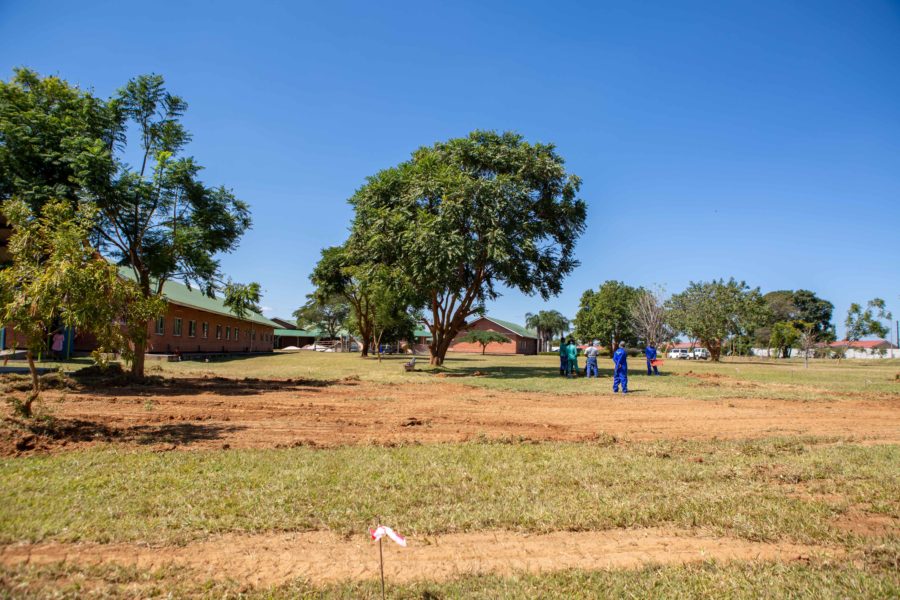Increasing our Capacity to Heal: Patient Hostel
As Beit CURE Zambia has grown over the years, the need for appropriate lodging for patients and their caretakers outside of the patient ward has become necessary. There are a variety of circumstances that require patients and their caretakers to stay at the hospital beyond their immediate hospitalisation for surgery. In some cases, patients arrive a day or two before their scheduled surgery and have nowhere in Lusaka (where Beit CURE Zambia is located) to stay. Many patients come from far away, and traveling 200 miles to come to the hospital is common. It is also common for a patient to arrive for their surgery on-time, but be sick with malaria or undernourished – in these cases, surgery has to be rescheduled while the patient gets healthy. In other cases, a patient may require multiple surgeries and have come from such a distance that to return home in-between surgeries is not feasible or advisable. Others may require extended physical therapy following their surgery, or in the case of amputations, they may require a prosthetic fitting.
Currently, these patients and their caretakers are lodged in the patient ward, which is far from ideal as they put additional strain on the clinical resources of the hospital and occupy space needed by patients requiring close medical supervision. In fact, these lodging constraints actually prevent some patients from receiving the surgical care they need. For example, patients who require external frames or orthopaedic devices are only able to receive surgery if they come from the towns immediately surrounding the hospital. If they come from further away, Beit CURE Zambia is unable to take them on as a patient because there is nowhere for them to stay. These frames and devices require regular adjustment and supervision meaning the doctors need easy and repeated access to the patient for an extended period of time, sometimes several months. This is not possible if they are not in the area. Thankfully, this is all about to change.
In view of the challenges highlighted above, a grant proposal was submitted to the UK based Beit Trust to fund the construction of a long term patient hostel. The proposed hostel would have six male beds and 15 female beds. The hostel would have a total of four toilets and four showers with two toilets and two showers accessible for persons with disabilities. A multipurpose space would be included to be utilised as a playroom for the children or as a counseling room. In times of high occupancy, the multi-purpose space could be utilised to house five extra beds. There would also be a large covered porch for the guardians and patients to interact with to foster community.
In December 2019, Beit CURE Zambia was officially notified that our grant application had been approved and the ground was broken on this exciting project in May 2020!

The construction of the patient hostel will provide a solution for patients who need to be at the hospital for an extended stay but do not need close medical supervision in the ward. The hostel will allow these long term patients to be housed within the hospital grounds while keeping ward beds free for new and post-op patients who need immediate attention. The hostel will improve the hospital’s bed occupancy rate, the average length of stay, and the efficient use of the hospital resources. With the hostel in place, more patients will benefit from life-changing surgeries and spiritual care at CURE Zambia.
Long term patients will have the added benefit of additional time with our spiritual department. The hostel will be a place of healing, where children and their guardians will receive love and care from our spiritual team. Many of our patients come to Beit CURE Zambia after years of spiritual oppression and social discrimination. The hostel will give them a place to develop community with other families in similar situations and be cared for on a larger scale. It is in close proximity to both the playroom and cafeteria ensuring that the families can interact in a social environment. It’s a place where the families will set off on their journey of hope and healing.
Click here to learn more about CURE Zambia.
Footnote: Story and pictures by Chaanga Mungalu, CURE Zambia storyteller
